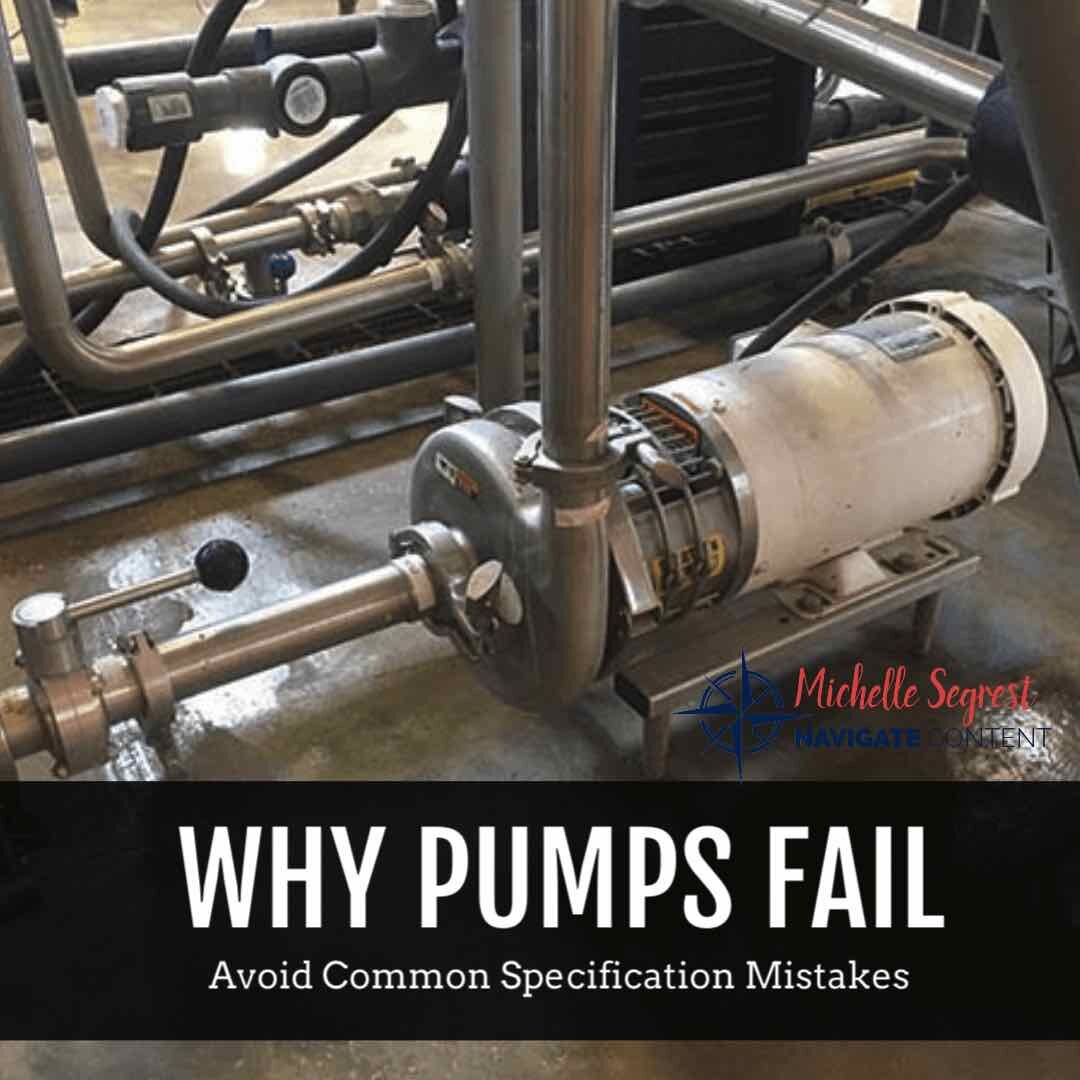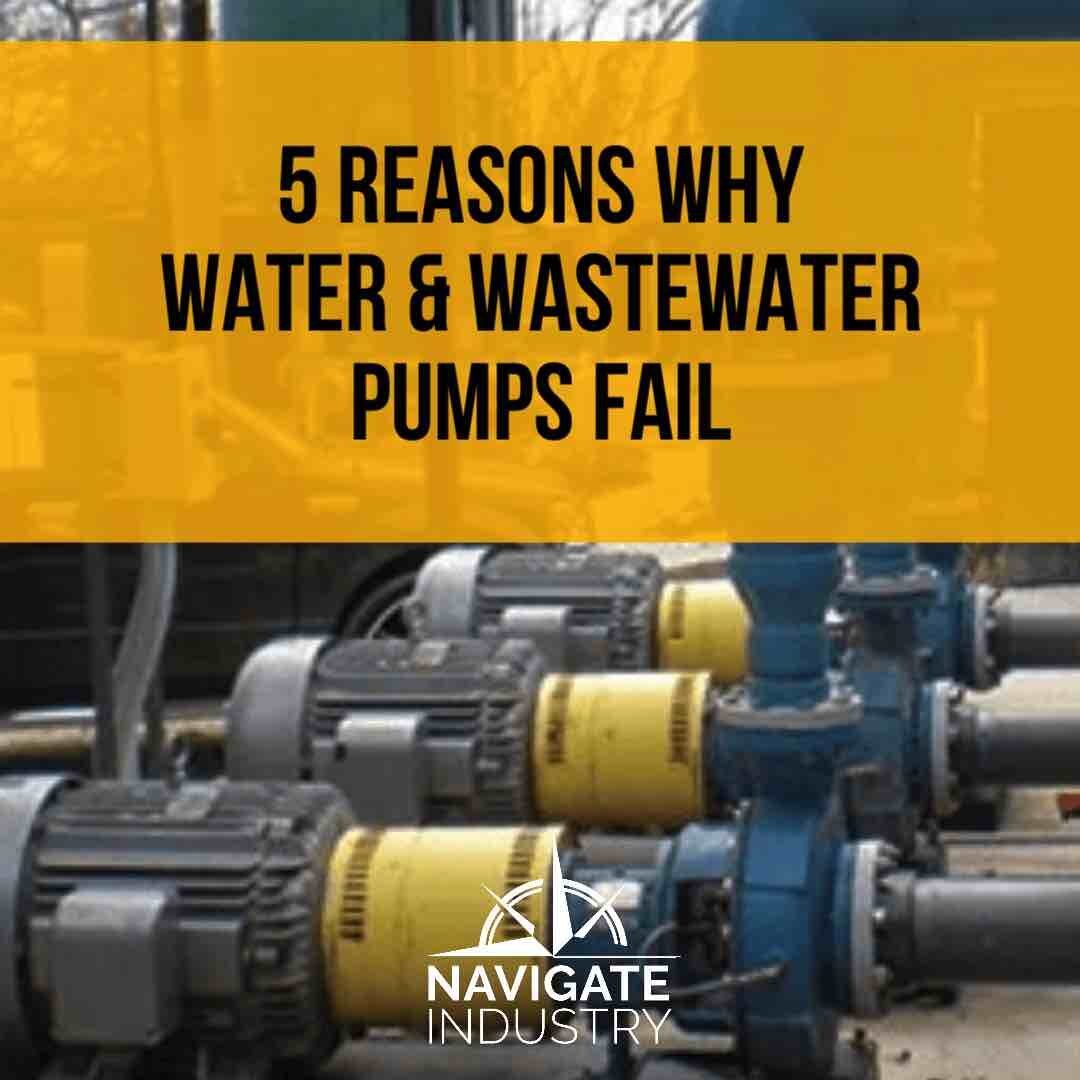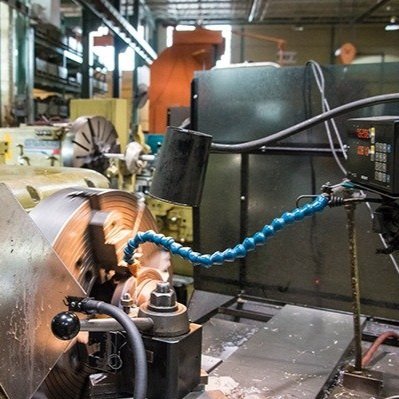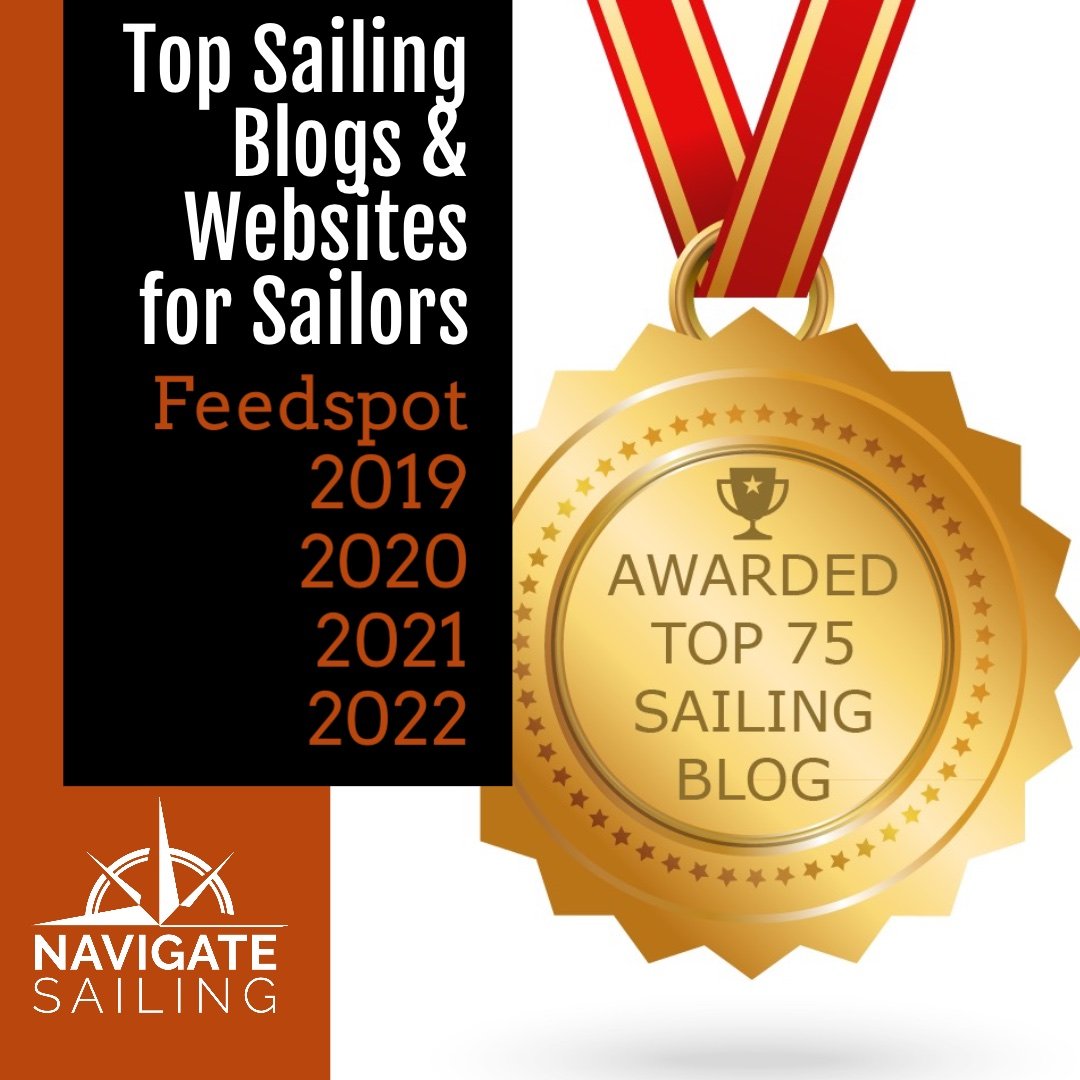Energy Efficient Engineering and Lubrication Best Practices
/When it comes to working with customers to solve lubrication and engineering problems, Adam McMurtrey relies on a lifetime of experience that goes all the way back to his childhood. For ExxonMobil’s Mobil Serv program, he works closely with industries ranging from lead mines to chicken rendering plants—always with energy efficient lubrication at the forefront of every solution.
By Michelle Segrest, Navigate Content, Inc. - Reporting for ValveWorld, ValveWorld Americas, and Pump Engineer
Adam McMurtrey has a simple but effective process. “When I go to a customer in any type of manufacturing, I tell them that I do three things,” said McMurtrey, an industrial sales engineer for ExxonMobil Fuels & Lubricants Company.
“I use the acronym ACE. I’ll analyze the operation. I’ll try to consolidate the lubricants and greases that they use to help avoid contamination and to simplify their process. And then I try to enhance their operation either by extending the life of the equipment, extending mean time between failures or time between overhaul or by extending the life of the oil.”
Usually, operations are already running when McMurtrey arrives at the facility. “Even if they don’t use our other services, our engineering services are always available to the customers,” he explained. “We support our current customers, and don’t charge them for these services. We try to understand their operation and what makes it unique.”
For example, one client has a plastic injection molding operation in Missouri in which they manage more than 100 pieces of old and new production equipment.
“One of the things we realized early on is they have a significant amount of dirty hydraulic oil,” McMurtrey said. “This causes two problems—it causes equipment failure and requires frequent oil changes or top-offs. We performed a Mobil Serv equipment study to understand the operation so we could make specific recommendations. Once we provided recommendations on filtration, ISO cleanliness, and storage and handling best practices, we helped them understand how they could reduce the amount of energy they consume over a specific period of time, in this case a year. We gave them a proposal that saved them $106,000 per year from increased equipment life, increased production time, longer oil life, and reduced energy costs. It didn’t cost them anything and it was just a recommendation, but they could take action on the specific changes we recommended for the oil cleanliness. Then we performed a total cost of ownership analysis to make sure it made sense for them to use this energy efficient hydraulic oil.”
The client adopted both recommendations and now uses the energy efficient hydraulic oil for their operation. A project like this could take three to 12 months to complete.
“It didn’t make sense for them immediately—why would they put an energy efficient hydraulic oil into a contaminated reservoirs?” McMurtrey explained.
“There are times when we make a recommendation that we believe will extend the life of the valves, and pumps, and other equipment, but it actually doesn’t make sense for the customer to implement it. In this case, we usually give them the documentation so they understand, but then recommend that it doesn’t make sense to move forward.”
Sometimes the recommendations involve changing the operation or changing the habits of the operators to get the desired result. “That’s the hardest part,” he said.
“For example, we may say, instead of changing the oil every month, we recommend changing it once a year. Also we need to help them realize that in some applications they are greasing the application too frequently. It takes a while for them to adjust to these new habits sometimes. If the recommendation doesn’t make sense, we are fine with that. It’s just good to look at it so you know what is possible.”
Since the 1970s, ExxonMobil has pioneered used oil analysis and continued to refine predictive maintenance technology through breakthrough innovation. Mobil Serv Lubricant Analysis provided accessibility and convenience and timely, accurate in-service analysis. The state-of-the-art laboratories process more than one million samples every year. The data and recommendations delivered help customers be more productive and efficient, avoiding costly unscheduled downtime while enhancing safety and environmental care.
A Background in Engineering Leads to a Career Solving Lubrication Problems
McMurtrey grew up in Colorado with three brothers and a sister, who is now a civil engineer. The 33-year-old has been working in the field for eight years, but got his early training from his father, also an engineer.
“Growing up in Colorado was a very rich experience,” he said. “I didn’t always appreciate it at the time. I felt like my Dad was trying to ruin my childhood a little bit because on Saturdays I wanted to play sports and watch cartoons. Instead, my father bought some mountain property and he would take us boys up there, and we would try to build something. We built a zipline and a cabin. One year for Christmas my mother got my father a bulldozer. It took us a while to get it started but once we did, we started pushing some dirt up the hill and the tracks came off the bulldozer. It took us four hours to get it back on track. But we learned to work with tools. We learned how things work. We worked through winters, and we worked through summers—this really made me interested in understanding how things worked—and in particular, how things don’t work and how to avoid having things stop working. I spent a lot of time with frozen fingers trying to get something to work so I could go home and have a nice warm meal.”
McMurtrey graduated from Brigham Young University with a chemical engineering degree.
He worked in the construction industry for Dow Chemical—working with construction crews and architects for five years in New York and Washington, D.C., trying to build energy efficient buildings. During that time, he became a LEED green associate—an industry designation signifying that you understand how to make things energy efficient and about environmental design.
“It was always important to me to understand the mechanics of how things work, but it was also important to me to understand the processes and how make things work not just one time, but every time,” he said.
It was this passion for energy efficiency and sustainability that drove McMurtrey to his current position with ExxonMobil.
“I think I was always interested in making things better—and energy efficiency fits right into that,” he said. “This is a big energy provider company. What we are finding here is that, particularly with hydraulic pumps, we are able to reduce the energy consumption that pumps need to do their job in all applications—including mining, construction, general manufacturing, and plastics manufacturing. We are finding that we are able to reduce the amount of energy that pumps consume to do their job. In some instances, we can help customers get incentives through company efficiency programs.”
Engineering Training is Key to Solving Industrial Lubrication Problems
McMurtrey said that one of his favorite pieces of the job is to train. “Training is a broad term,” he said. “But I really enjoy this because we get into things like behavior change and the actual technical details of the whys. Why do we need to do this? Why does this work? Once people understand how this applies to their own life, it then makes sense in the work environment. If someone is training me on how to do something, I generally think about whether this makes sense for my car or other pieces of machinery I use in every day life. Then they can drop back and apply it in a way that makes sense.”
McMurtrey’s team uses a combination of training resources including general instruction and facility walk throughs.
“It’s important to walk around and have discussions about the specifics of why and how,” he said. “As we have these types of discussions, it seems there are a lot more questions. We have content to present, of course, but we don’t usually have a formal slide presentation. Sometimes it happens organically. People bring up issues they are dealing with because we just happen to be in front of them. They may say, is there anything you guys can do about this, and we can dive into their specific issue. The training doesn’t always start specifically. We may not have all the answers going in, but the training in its basic form is built in such a way that it allows us to open up to specific issues.”
McMurtrey utilizes distributors who help with onboarding and implementing. He collaborates with his senior lubrication engineer to consult on issues like gear inspections and engineering studies.
Best Tips for Extending Equipment Life
McMurtrey said his group has a methodology for extending the life of pumps, valves, and other equipment across all industries.
“We recently were inspecting an operation that makes rail cars,” he said. “We can look at it in a real way to show ways to extend the equipment life, its uptime, and its reliability. Each situation is different so there is not a cover-all method. Sometimes the solution is through our products. Sometimes it’s through storage and handling, or the cleanliness of the oil that contributes to that.”
An energy efficiency example is from a 2.5 year study on a plastic injection molding operation and an axial piston pump that was able to achieve more than 3 percent energy efficiency. This was measured by a third party engineering team for a customer in a real application, working with the Wisconsin Focus on Energy Program.
Reflecting again on his childhood experiences and the wisdom gleaned from his father, McMurtrey remembered one of the lessons learned. “One problem my father always had was that every month a pump would fail,” he said. “It’s very dry up there. We put a pump in a well that was 600 feet deep so we could have water. After only six months, it failed. It was powered by a solar array. Even at home we had a sun room with a waterfall. It just seemed like any pump my father touched would fail. I learned even then that any time I buy a pump, I’m going to buy the best pump. I learned to just go for quality. Do it right and at the right time.”
Best Advice and Tips for Equipment End Users
McMurtrey offers advice for other end users.
“My area of expertise is around lubrication so first and foremost, it’s important to keep the oil clean,” he said. “We teach customers to be independent. We don’t want them to have to rely on us. We want them to be competitive against other manufacturers across the globe. One tip is to filter the oil. Another is keeping it clean and dry. This extends the life of the equipment and the oil significantly. This is the reality—I’m basically helping my customers buy less of what I sell. This is good because it helps them to be competitive and sustainable as a business. I don’t just want to sell them product, I want them to improve their operation.”
The universe of different oils is huge.
“There are motor oils for passenger vehicles and oils for highway trucks,” he explained. “There are food grade oils that you can actually consume. There are oils for all applications. There are hundreds of types of oil products across all types of manufacturing. There are gear oils, and crank case oils for engines, and R&O oils, hydraulic oils, compressor oils, turbine oils for power generating stations. Oil is designed for very specific applications.”
McMurtrey said this is why the consolidation piece of his job is so important.
“A customer may have 10 different products on hand,” he explained. “Some is used every day, and some is used twice a year, for example. We can take our understanding of how these oils and lubricants were designed and understand the specific type of application and what the OEM is recommending to make an engineering recommendation to perhaps consolidate down to three greases and a few lubricants.”
McMurtrey and his Mobil Serv team are forming a marriage between the equipment, the oils, and the application. Mobil Serv is the engineering service brand. “We try to help any manufacturer advance their ambitions toward mobility, productivity, and sustainability. We cover many applications, but we are really good at general manufacturing, all things mining and construction, plastics manufacturing, food-related production, petrochemicals, passenger and commercial vehicles, aerospace, rubbers and tires.
McMurtrey’s father is still building things in the foothills of Colorado. “He is still working with tractors and growing vegetables,” he said. “I think he is proud of two things—one is that he instilled in all of us a desire to work hard, and put in long days—sunshine or not. Anytime I go to visit he asks if I want to plant a tree or work on the farm. There is always a drive to be in touch with nature and to keep our hands dirty. That’s part of his essence and he instilled in us to not be afraid to get dirty and make things work better. It’s always rewarding if I can make sense of what I do. It’s the engineering gene.”
Michelle Segrest is president of Navigate Content, Inc., a full-service content creation firm, and has been a professional journalist for 30 years. She has covered the industrial processing industries for the past decade and specializes in technical articles and case studies that focus on technology and innovation connected with rotating equipment. michelle@navigatecontent.com
You may also like these RELATED ARTICLES:
This page contains affiliate links. If you click on the product links and make a purchase, it allows me to make a small commission at no extra cost to you! Thank you for your support! I hope you find value in this content!

















